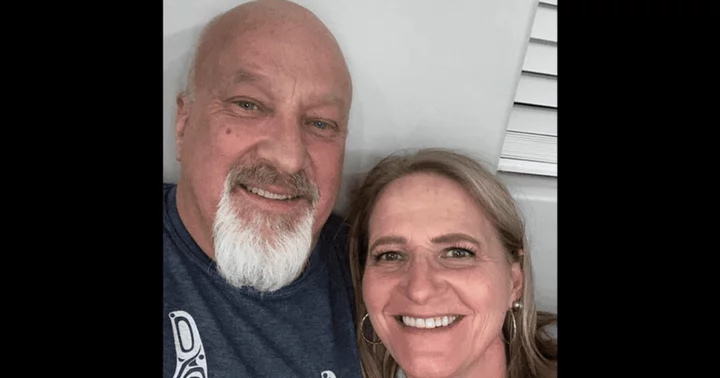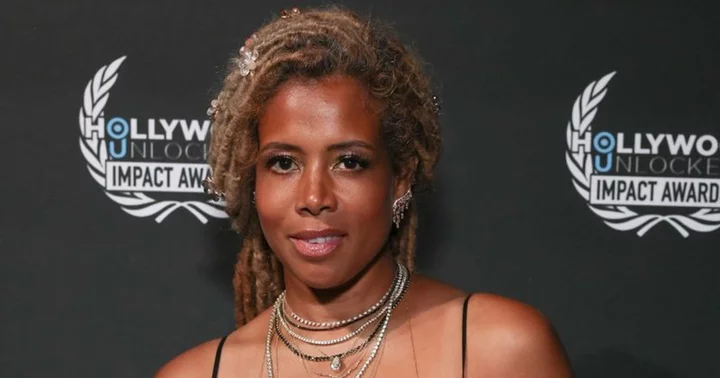BLOOMFIELD HILLS, MICHIGAN: 'Queen of Soul' Aretha Franklin's sons arrived at a Michigan court on Monday, July 10, to mark the beginning of the legal battle to determine which of the two sets of documents left behind by the singer can be considered to be her will. After the music legend's death at the age of 76 back in 2018, it was revealed that Franklin did not leave behind any formal or typewritten will and it was therefore decided that her remaining assets would be equally divided among her four sons.
However, a document signed by Franklin in 2010 was found inside a cabinet and it stated that the singer wanted to make her third son Ted, 60, the executor of her estate along with Franklin's niece, Sabrina Owens. However, in March 2014, another document found in a spiral notebook under the couch cushions saw Franklin favoring her fourth son, Kecalf, over Ted. A handwritten version of the document emerged in 2019 and showed that the singer crossed out Ted's name and inserted Kecalf's name as the executor. Both the brothers are now in court to decide which of the documents can be considered Franklin's true will.
Exploring Aretha Franklin's true will
Franklin died in 2018 without a formal or typewritten will. However, she left behind two documents, either or both of which can be determined as her true will, as per the decision of the court following the end of the Michigan trial involving her four sons. Franklin's eldest son Clarence and second son Edward were born to the same father when the singer was a minor. Meanwhile, Ted was born to Franklin and her husband Theodore in 1964 before Kecalf, who was born to the singer and her road manager, Ken Cunningham in 1970.
Following the singer's death, it was announced that her assets would be distributed among all four of her sons. However, two documents recovered subsequently in 2010 and 2014 prompted her children to get involved in a legal battle to determine which of the documents can be considered as her will. The documents reportedly contain more than a dozen pages documenting the singer's handwritten wishes with crossed-out words and insertions. Franklin named Ted as the executor of her estate in the 2010 document. However, she canceled out his name and named Kecalf as the executor in the document found in 2014.
Amid the ongoing legal battle, the court also revealed three voicemails recorded by Franklin months before her death. In those messages, the singer discussed another will that she was allegedly preparing with an estate lawyer named Henry Grix. The messages, played in court earlier this year, also revealed that Franklin already decided on some details about her estate. She reportedly wanted her pianos to be auctioned off at Sotheby’s but noted that she would let other decisions wait for a future meeting at the lawyer’s office.
As per The New York Times, initial reports suggested that Franklin's total estate was estimated at $18 million after her death. However, in 2021, it was revealed that the singer left behind some tax liability which resulted in her estate striking a deal with the Internal Revenue Service to pay off about $8 million in federal income taxes through a portion of any new music royalties or income from projects like the musician's new biopic starring Jennifer Hudson.
According to the 2014 document found from inside the couch, three of Franklin's sons, excluding Clarence, who has a mental illness and is under a legal guardianship, would receive equal shares of the singer's music royalties. However, the document mentioned that the distribution of her personal property would be favored toward Kecalf by giving him two of the singer's four homes and the singer’s cars, the number of which was not specified. Meanwhile, the 2010 document found in the cabinet suggested that all four of the singer's sons would receive weekly and monthly allowances.
Ted previously asked the court to consider the documents drafted by Grix as the singer's final decision regarding her estate by stating that it was the most recent expression of Franklin's wishes. However, Judge Jennifer S Callaghan did not favor the documents and excluded it from consideration stating that Grix believed Franklin "hadn’t made up her mind" about the will at the time. "It is clear to this court that the attorney who was retained to personally memorialize the Decedent’s estate plan did not believe that the Decedent had yet reached a final, complete plan," she said back in May.
What did Aretha Franklin's sons say in court?
On Monday, July 10, Ted, who often played guitar during his Franklin's performances, told the court that he believes the singer's 2010 document should be considered as the only legitimate paperwork related to her assets. "With all the time I spent working with her administratively, every other document that she ever signed was something that was done conventionally and legally," he told the jury. However, he also admitted that the other document discovered around the same time was also written in his mother's hand.
Ted's lawyer Kurt A Olson previously pointed out that while both of the documents were possibly written by Franklin, the 2010 paperwork was notarized and had the singer's signature on each page. Speaking about the 2014 document, Olson wrote, "If this document were intended to be a will there would have been more care than putting it in a spiral notebook under a couch cushion."
However, in the latest hearing, Kecalf mentioned that it was not unusual for his mother to stuff important papers like a will inside a furniture placed in the living room. Testifying to his attorney, Kecalf mentioned that Franklin often read mail, made important phone calls, signed documents and even slept "on the couch." Sabrina Owens, Franklin's niece who was charged with managing the singer's estate immediately after her death echoed similar statements in a pre-recorded interview played in court.
"She would use the kitchen and living room - that was about it. So when I got to the sofa, I lifted up the far-right cushion and there was three notebooks there," she explained. Franklin's second oldest son, Edward, previously sided with Kecalf and said the 2014 document should be considered as the singer's primary will. His lawyer Craig A Smith said that although Edward would benefit more if both of the wills were deemed invalid, he decided to support the 2014 document because he believes "that’s what Aretha wanted."
Kecalf's lawyers also argued that the 2014 document should be considered as her actual will as it is the most recent handwritten document created by Franklin outlining her plans. Reports suggest that the 2014 document would also mean that Franklin's eldest son, Clarence, would inherit significantly less as compared to his brothers. However, in recent days, his lawyer Joseph Buttiglieri said that Clarence and his team would not be taking sides in the trial as they reached a settlement for an undisclosed percentage of the estate. The 2010 document also stated that her sons Edward and Kecalf must take business classes before receiving their portion of the inheritance. The 2014 document did not mention any such thing but she did mention a guarantee of support for Clarence due to his mental illness.
Despite the differences in the 2010 and 2014 documents, both indicate that Franklin's four sons would share the income she gets from music and copyrights. As per The New York Times, the fate of the documents is now in the hands of a six-person jury. The jury can either come up with an amalgamated solution, taking into account items from both documents, or denounce either of the documents before reverting back to equal distribution of the singer’s estate between her sons, as per Michigan law.









